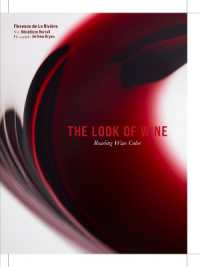Full Description
The evolution of feminist therapy involves the reconstruction of therapeutic goals, values, frameworks, and theory, as well as an acknowledgement that there is no single reality, no one ""right"" feminist theory or epistemological position about women. This collection of original articles addresses a range of topics relevant to understanding contemporary Canadian women's experiences. The contributors are, like the women who enter into counselling relationships, from diverse backgrounds and experiences, and speak in a variety of voices.
Features:
discusses multiculturalism, motherhood, women's sexuality, woman abuse, violence against women, dominance relationships, and mental health concerns affecting Aboriginal women's realities
considers embodiment, lesbianism, ethics, social justice, crisis counselling, storytelling, and women who are mandated to seek counselling
Contents
Introduction: Negotiation Social Complexities in Counselling Practice - Lynda R. Ross and Marie Lovrod
Section I: Women in Context: Feminist Theory's Contribution to Understanding Women's Lived Realities
Chapter 1: Women on the Margins: Honouring Multiple and Intersecting Cultural Identities - Sandra Collins
Chapter 2: Mom's the Word: Attachment Theory's Role in Defining the ""Good Mother"" - Lynda R. Ross
Chapter 3: Male Violence against Women and Girls: What Feminist Counsellors Need to Know to Begin Their Work with Women - Charlene Y. Senn
Chapter 4: Hitting Like a Girl: An Integrated and Contextualized Approach to Confronting the Feminist Dilemma of Women's Use of Violence - Susan LeBlanc
Section II: The Political as Personal: Socio-cultural Factors Informing Feminist Practice
Chapter 5: A Word Is Worth a Thousand Pictures: Counselling with Metis and First Nations Women - Cathy Richardson
Chapter 6: Aboriginal Women and Post-traumatic Stress Disorder: Implications of Culture on Therapy and Counselling Practices - Kathy M. Bent
Chapter 7: Considerations in Counselling Children and Adult Survivors of Childhood Traumas: Community, Context, and Intersubjective Resiliencies - Marie Lovrod
Chapter 8: No ""Body"" to Blame?: Socio-cultural Influences on Girls and Women - Gina Wong-Wylie and Shelly Russell-Mayhew
Chapter 9: Is Being a Lesbian a Queer Thing to Do? - Bonita Decaire and Deborah Foster
Section III: Counselling Practice as Feminist Praxis
Chapter 10: Counselling Women: Ethics for Diversity and Social Justice - Jean Pettifor and Judi Malone
Chapter 11: Feminist Counsellors Respond to Abuse in Lesbian Relationships: Confronting Heteronormalcy - Janice L. Ristock
Chapter 12: Feminist Crisis Counselling - Karen M. Nielsen and Ann Marie Dewhurst
Chapter 13: Telling Stories to Make Sense of Job Loss - Arlene M.C. Young
Chapter 14: Engaging Women Who Are Mandated to Participate in Counselling - Ann Marie Dewhurst and Karen M. Nielsen
Appendix 1: Guidelines for the Ethical Delivery of Psychological Services for Women







